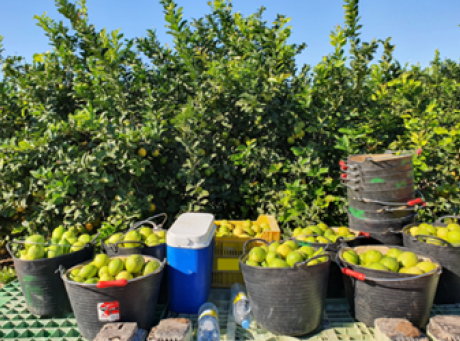Citrus fruit from Spain: HRIA
Posted by Stuart Bell

This report presents the findings of the Human Rights Impact Assessment (HRIA) on the citrus supply chain originating in Spain, which Ergon conducted or the ALDI North. The report, which has been published by ALDI, supports the implementation of ALDIs Human Rights Policy. Through an internal human rights risk assessment (HRRA) conducted in 2018, ALDI identified a number of products as high-risk, including tropical fruits. Within this, citrus products from Spain were selected as an area of focus for the HRIA owing to its significant importance to ALDI in terms of volume and turnover, as well as the known human rights risks within Spanish fruit and vegetable supply chains.
Key human rights issues and root causes identified include:
Subcontracting of workers through temporary employment agencies (Empresas de Trabajo Temporal – ETTs) which decreases visibility over the workforce and increases risks of non-compliances particularly affecting harvest workers engaged by unethical ETTs. Non-compliances commonly can include payment discrepancies and deductions, excessive hours, occupational health and safety issues and poor treatment of workers, as well as charging workers excessively for necessities such as transport.
Some harvest workers may be temporeros, or nomadic migrant workers that move around Spain during the year working in different harvests. Temporeros are more likely to be irregular migrants, or without residency status, and are the most vulnerable to exploitation by unethical ETTs and supervisors
Despite regular social assessments and audits in the supply chain, issues related to non-compliances with collective bargaining agreements, excessive hours, poor treatment of workers and inadequate complaints mechanisms persist.
Market dynamics such as fluctuation in demand, high level of competition within the sector and low-price strategies along the supply chain reportedly leave packing houses with limited profit margins. Increasing costs and additional competition from non-EU markets compound these commercial pressures – together with crop disease, climate change and other challenges that limit productivity.
Gendered roles were common. Women were found to be minimally represented among field workers in field maintenance and harvest activities, as well as in roles in warehousing and international road transport. Instead, women are generally concentrated in roles in processing and packing, where they are the majority of the workforce.
Based on the recommendations provided by Ergon, ALDI has developed a Human Rights Action Plan (HRAP). ALDI focuses on those areas, where it has potential linkage to salient human rights impacts and their root causes, where these have a sectoral or business driver. The key objectives laid out in the HRAP are:
• Review and strengthening purchasing practices
• Increase visibility and leverage
• Strive for greater protections for workers
• Support collaborative initiatives and raise awareness